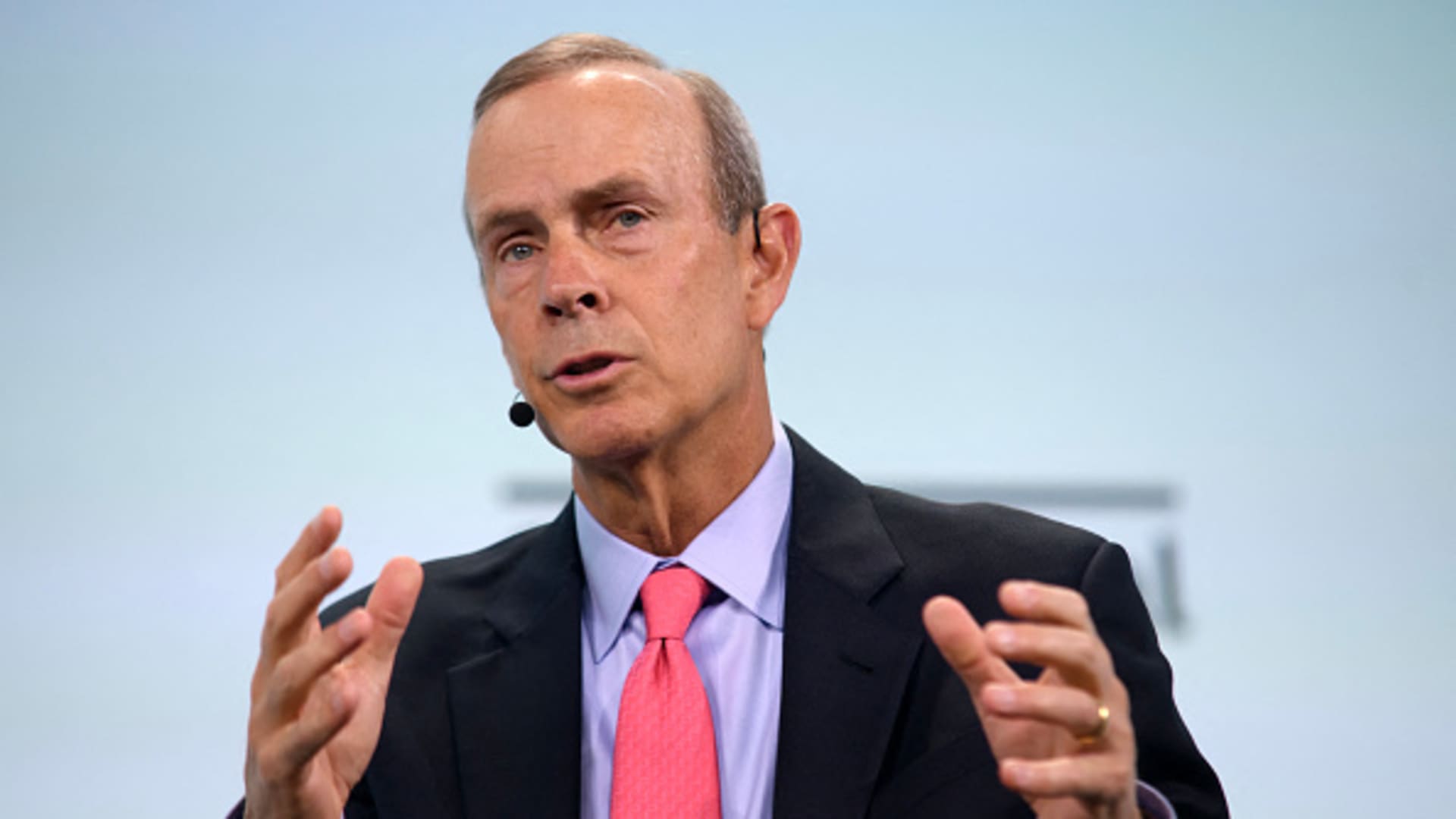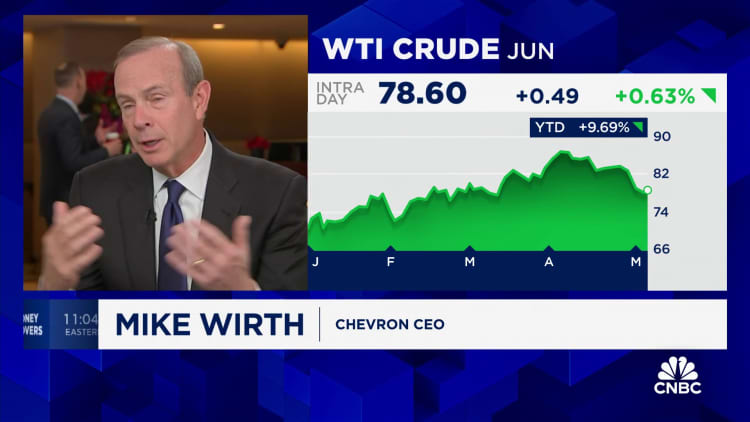Chevron CEO says natural gas demand will outpace expectations on data center electricity needs



Natural gas demand will likely outpace expectations as electricity consumption surges from artificial intelligence and data centers, Chevron CEO Mike Wirth told CNBC on Monday.
“It’s a little hard to quantify right now because this is evolving so quickly on the AI side,” Wirth told CNBC’s Sara Eisen at the Milken Institute’s Global Conference in Los Angeles. “But I think demand for natural gas is likely to be higher than what people have been estimating up until now.”
Wirth said the move to electrify the nation’s vehicle fleet, heating and manufacturing as well as the increase in demand from data centers will require reliable and affordable backup power generation.
Wind and solar offer affordable power in some regions, but they still face challenges in generating enough electricity to meet peak demand because they rely on variable weather conditions, the Chevron CEO said.
“Data centers don’t shut down when the sun goes down,” Wirth said. “We need to have the ability to provide baseload supply for all of these needs. I think natural gas will be a big part of that equation going forward.”
Wirth said coal plants are being phased out in the U.S., nuclear power is expensive and geothermal energy is not as proven as other power sources. “You come back to natural gas as the most likely source of that reliable baseload supply,” the CEO said.
Electricity demand in the U.S. is expected to surge by as much as 20% by 2030, according to research from Wells Fargo published in April. Natural gas demand could increase by 10 billion cubic feet per day, or bcf/d, by the end of the decade as a consequence, according to Wells. To put that in context, the U.S. currently consumes 35 bcf/d for power generation and 100 bcf/d total.
Goldman Sachs is forecasting that natural gas will provide 60% of the new electricity demand from data centers, while renewables will provide 40%. The investment bank says natural gas pipeline operators such as Kinder Morgan, Williams Cos. and producer EQT Corp. stand to benefit.